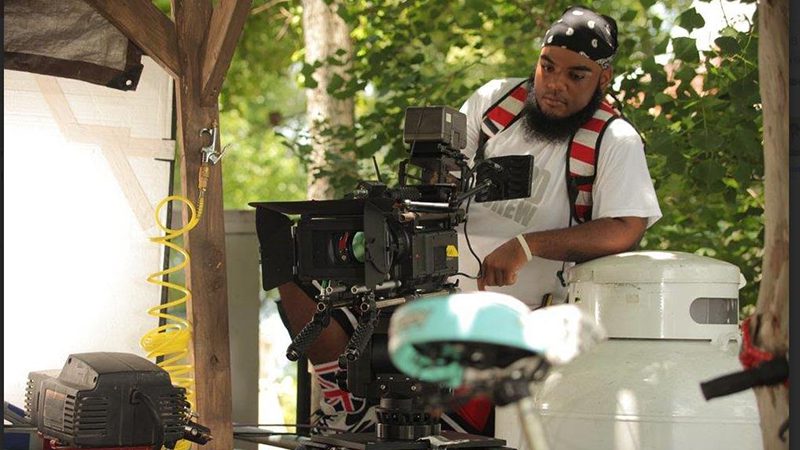The Power of Documentary Filmmaking: The Ultimate Career Path for Students

Documentary filmmaking is a fascinating blend of nonfiction and art, a field that fosters curiosity and contributes to knowledge and understanding. Whether you’re an aspiring student or a potential donor, supporting documentary filmmaking education at UNCF schools allows you to contribute to a varied culture of storytelling and learning. Even if you’re past the stage of studying documentary filmmaking yourself, consider donating to help fund future student filmmakers and the important stories they will tell.
Documentary filmmaking is a powerful field of study, poised with opportunities for students who are ready to make their mark. It is an avenue for authentic storytelling that allows for the exploration of diverse narratives, perspectives, and truths—an opportunity to mold public discourse and effect social change.
In a society where representation matters, the need for Black voices to be heard and their stories to be told accurately and empathetically is more crucial than ever. For Black students, the field of documentary filmmaking opens a unique space to illuminate their experiences, culture, history, and struggles, thereby enriching the global media landscape with their invaluable perspectives.
Black filmmakers have long been some of the most accomplished and inspirational filmmakers throughout history, and many have utilized documentary filmmaking as a means of bringing attention to critical social issues, documenting historical moments, and shaping cultural narratives. This legacy not only provides a source of inspiration for Black students but also emphasizes the important role they can play in this domain.
In 2022, Ahmir “Questlove” Thompson became one of the few Black directors to win a Best Director Oscar for his documentary “Summer of Soul”, showing that Black documentary filmmakers are beginning to gain more recognition and nominations for their powerful work, though much work remains to be done in achieving equitable visibility.
Additionally, inspiring female documentarians may choose to draw inspiration from resources like Black Women Directors, a digital library that honoring and highlighting underrepresented voices in global cinema, or this curated list of Black women film creatives.
Documentaries are influential tools for education and advocacy. The power of a well-crafted documentary to provoke thought, stir emotions, and inspire change is undeniable. Black students in this field have the opportunity to leverage these characteristics to shed light on underreported topics, challenge stereotypes, and fight racial bias.
Furthermore, the current surge in demand for documentaries—thanks to platforms like Netflix and HBO—suggests promising career prospects. This trend also reveals an increased appetite for diverse content that moves away from monolithic narratives, opening doors for Black filmmakers to produce work that resonates with a wide audience.
For Black students, documentary filmmaking is not just a promising field of study but a platform for empowerment, representation, and change. It offers a means to influence society, culture, and public opinion, making it an exceptionally rewarding and significant discipline to pursue.
The Learning Journey
Students eager to pursue documentary filmmaking can start their journey by enrolling in a film degree program at a UNCF school. These programs offer a comprehensive curriculum covering various related subjects:
- Animation or Digital Arts
- Cinematography or Videography
- Producing
- Directing
- Art Direction
- Screenwriting
- Post-Production
Careers in Documentary Filmmaking
The field of documentary filmmaking offers an array of career opportunities, including:
- Performance and Acting: Cast members, body doubles, stunt coordinators, and casting staff.
- Production: Film directors, assistant directors, producers, screenwriters, and more.
- Cameras: Cinematographers, camera assistants, videographers, and film editors.
- Sound and Music: Sound mixers, designers, foley artists, and engineers.
- Lighting: Gaffers and key grips.
- Makeup, Costumes, and Props: Makeup artists, hair stylists, costume designers, and prop masters.
- Art Department: Art directors, storyboard artists, and effects technicians.
Supporting students in these careers means empowering a new generation of storytellers, people who can redefine the media landscape and promote diversity. Consider donating to support documentary filmmaking education today and make a difference for future media professionals.
Want to learn more about this possible career path and college major? Have questions about which UNCF colleges and universities offer degrees in documentary filmmaking? Looking for help with financing this degree?
Click Here So We Can Help You!

Wiley University
How to Prepare for Success
Documentary production majors should be hands-on learners with an interest in cinema and an understanding of the many teams and components needed to make a film. You should also have a strong work ethic, good collaboration skills, and a willingness to take on multiple roles while being flexible.
UNCF Schools To Consider
Four UNCF-member schools offer film programs for students interested in entering the field of documentary filmmaking, including:
Professional Organizations
There are also many professional film organizations that may shed more light on what it’s like to work in this industry:

- Academy of Motion Picture Arts and Sciences (AMPAS)
- The Gotham (formerly the Independent Filmmaker Project)
- Motion Picture Association of America (MPAA)
- National Academy of Television Arts and Sciences (NATAS)
- International Documentary Association
- Sundance Institute
Scholarships Available
There’s no better way to start on your path toward a successful career in documentary filmmaking than with a solid financial foundation. Fortunately, many scholarships are available through UNCF—keep an eye on the UNCF website for current scholarship opportunities and announcements.
Search for specific scholarships and view those that are currently accepting applications here! Students should also check with each college or university to see if there are additional scholarships available for documentary filmmaking.
As you explore your options, be sure to use our guide to applying for scholarships and grants. You can also receive guidance by submitting a major interest form if you are interested in a career in filmmaking. Submit the form on our website to get started. And follow us on UNCF social media channels to receive notifications about our scholarships and member HBCUs. Reach out today!
If you want to amplify the voices of tomorrow by supporting UNCF’s documentary filmmaking programs, please consider donating today!